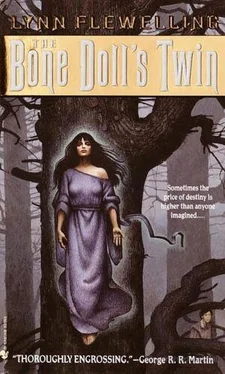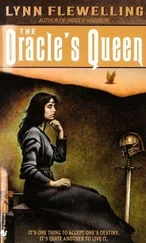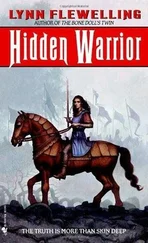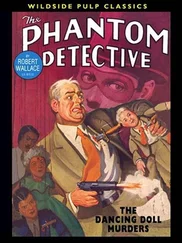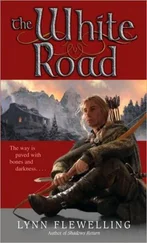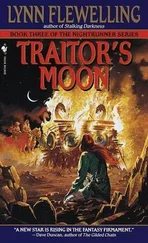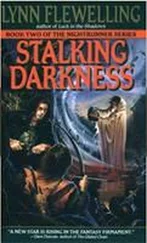As they lay naked together on her pallet afterward, she showed him whatever she was moved to in the way of spellcraft. Much of it seemed designed to overcome his natural aversion to blood magic.
She began by teaching him to “read the blood,” as she put it. She would hand him a bloodstained bit of cloth or bark; by touching it with fingers and mind, he soon learned to identify the creature that had shed it. As these lessons progressed, he learned to enter the mind of the creature if it was still living, and to see through its eyes. As a fox he padded through a meadow and dug sluggish mice from their tunnels in the brown, ice-rimed grass. As an eagle, he circled the keep in search of stray hens. In the strangest of these explorations, he entered a trout swimming in the muted brown light under the river ice and saw a woman’s jeweled ring shining brightly among the silky strands of slime that covered the rocks.
As a final test, Lhel gave him a bit of her own blood, and he found himself inside her skin. The simple minds of the beasts had given him nothing more than a few visual images, cast in shades of grey. Settling in Lhel, however, he felt the intimate weight of her body around him, as if he wore her flesh as a garment over his own. He could feel the sag of her breasts beneath her ragged dress, the ache that plagued her left ankle, the heavy warmth of their coupling between her thighs. After a moment’s disorientation, he realized that he was looking at himself through her eyes. His body lay on the pallet next to the fire, still as a corpse beneath the fur robe. With a mix of chagrin and amusement he inspected his own long, bony limbs, the jut of ribs under his white skin, the black pelt of hair that covered his chest and back, arms and legs. The expression on his face was ecstatic, like a temple Oracle’s when touched by the god.
For all that, however, he could not hear Lhel’s thoughts. That she would not share.
As his fear of her magic lessened, she began to impart a few rudiments about spirits and ghosts.
“How did you make the change in Tobin?” he asked one day as the wind moaned around the oak.
“You saw.”
“I saw you trade a piece of skin between them. Does it hold the magic?”
“It make skin one skin,” she replied, casting about for the right words. “When Tobin is to be a girl again, that skin must come off.”
He was not always the student with her. He helped Lhel learn more of his language, and showed her all the ways he knew to make fire. Comparing magics, they discovered that they could both call wind, and pass through any cover without leaving traces.
He taught her the Orëska method of wizard sighting, and in return she tried to teach him her “tunnel in the air” magic. However, this proved more difficult than he’d expected. It was not the whispered incantation, or even the patterned hand movements it required, but some odd twist of mind that he could not see and she did not have the language to explain.
“It will come to you,” she assured him again and again. “It will come.”
To Arkoniel’s dismay, the one person at the keep whom he seemed to make the least progress with was Tobin. The child was civil and seemed determined to master what Arkoniel tried to teach him, but there was always a distance between them that seemed unbridgeable.
One thing Tobin did choose to share, much to Arkoniel’s surprise, was the spell he used to summon Brother. Arkoniel attempted it, but with no result. Brother answered only to Tobin.
When he asked Lhel about it later, she shrugged and said, “They joined by flesh. That you cannot learn by magic.”
Arkoniel was sorry to hear this, for the spirit often found its way into his workroom. He had not seen it with his eyes since that day it had fooled him and spooked his horse, but there was no mistaking its cold, hostile presence. It seemed to enjoy tormenting him, and often came close enough to raise the hairs on his neck. It did him no physical harm, but more than once it drove him downstairs in search of Tobin.
Spring came early with little rain. As expected, King Erius signed a pact with Mycena and launched a campaign against the Plenimaran invaders there, leaving his trusted minister, Lord Chancellor Hylus, to oversee the court in his absence. One of Iya’s infrequent letters mentioned seemingly in passing that the king’s wizard, Lord Niryn, had also remained behind.
Rhius was to accompany the king, of course, and Tharin could no longer be spared.
The duke came in early Lithion to make his farewells, and brought a band of minstrels and acrobats with him to perform. He stayed less than a week, but rode with the boys each day, and sat up late in the hall, gaming with Tharin and Arkoniel and listening to the minstrels. The wizard was delighted to see him acting so much more like his old self, and Tobin was ecstatic.
The only thing to mar the visit was the sudden passing of the old steward, Mynir. He failed to come down for breakfast one morning and Nari found the old man dead in his bed. The women drained and washed the body, wrapped it with spices, and sewed it into a shroud to be carried back to his people in Ero.
The old man had been beloved in the household and everyone wept around the body as it lay before the shrine—everyone except Tobin. Even Ki shed a few tears for the poor old fellow, but Tobin’s eyes remained dry as he made his solemn offerings to Astellus. The sight chilled Arkoniel, though no one else seemed to remark on it.
The day of parting came too soon, and the household gathered in the courtyard to see Rhius and Tharin off. Arkoniel and Tharin had said their good-byes over wine the night before, but all the same the wizard felt a dull ache clutch his heart as he watched the tall swordsman saddle his mount.
Tobin and Ki helped glumly with the preparation, looking more subdued than Arkoniel had ever seen them.
When everything was ready and his father and Tharin were mounted to go, Tobin stood by his father’s stirrup and looked up. “Ki and I will practice every day,” he promised. “When can we come to join you?”
Leaning down, Rhius clasped hands with him, smiling proudly. “When my armor fits you, my child, and that day will come sooner than you think. When it does—” The man’s voice caught roughly in his throat. “By the Four, then no general will be prouder than I to have such a warrior at my back.” He turned to Ki then. “Do you have any message for your father, if I meet with him?”
Ki shrugged. “If I’ve served well here, my lord, you might tell him that. I can’t think what else he’d want to know.”
“I’ll tell him that no prince has a more loyal squire. You have my thanks, Kirothius, son of Larenth.”
Arkoniel would have been hard pressed to say whose eyes shone more brightly as they watched Rhius out of sight, Tobin’s or Ki’s.
For weeks after his father left, Tobin watched for messengers on the Alestun road, but none came. Arkoniel found him standing at his window one morning and guessed his thoughts. “Mycena’s a long way off, you know. They may not even be there yet.”
Tobin knew he was right, but he couldn’t help watching the road, all the same.
When a rider finally did appear one warm spring day a month or so later, it was not with word of Rhius.
Tobin and Ki were fishing at the river bend when they heard the sound of hooves on the road. Scrambling up the bank, they peered over the edge. The horseman was a rough-looking character in leather with a mane of wild brown hair flying about his shoulders.
The rules for strangers had not changed since Ki’s arrival: keep your distance and head for the keep. Ki knew this as well as Tobin did, but instead of obeying, he let out a whoop and leapt up to meet the rider.
Читать дальше
Конец ознакомительного отрывка
Купить книгу
